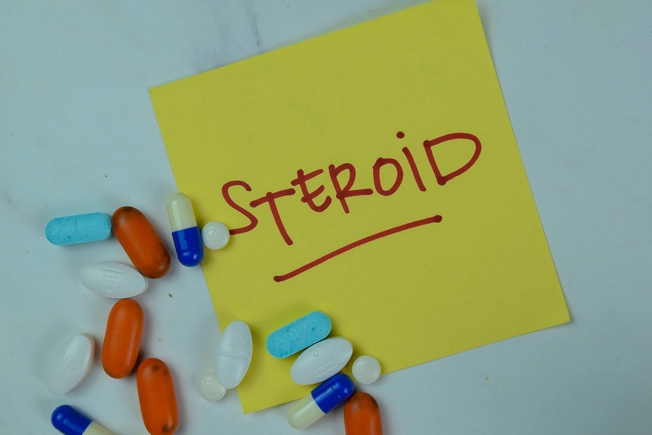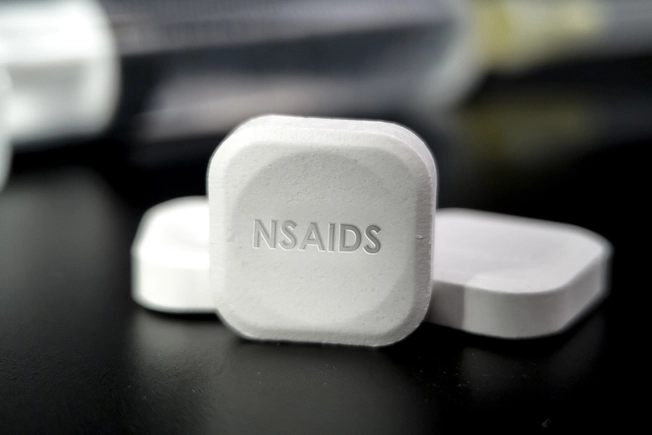- Overview
- Symptoms
- Causes & Risks
- Tests & Diagnosis
- Treatment
- Living With
- Complications
- Support & Resources
- Appointment Prep
- View Full Guide
Medications for Crohn's


Medications for Crohn's Disease
If you have Crohn's disease, the right medications may keep your condition under control. You may even go into remission, which means you won't have symptoms for a while. Your doctor may have you try many drugs before they figure out which medication or combination works for you.

Types of Medication
Usually, your doctor's first treatment goal is to tame the inflammation in your gut and ease your discomfort. They may also prescribe medication to keep your symptoms from coming back.

Steroids for Inflammation
Steroids help curb your body's inflammatory responses. You usually take them for three to four months to manage symptoms and put your Crohn's into remission. If you have been taking them for a while, don't stop suddenly without your doctor's OK. Otherwise, it could lead to a dangerous fall in your blood pressure and blood sugar levels.

Anti-inflammatory Drugs
These drugs help lessen the swelling in the lining of your intestine. Aminosalicylates (5-ASAs) may work well for mild and moderate Crohn's disease. They also may help prevent relapses.

Immunosuppressants
Drugs such as azathioprine can be prescribed when other treatments aren't working. They hold back your body's natural disease-fighting immune reaction. That helps reduce inflammation.

Antibiotics for Infections
Antibiotics are used to treat infections in the digestive tract that can accompany Crohn's disease. These medications target bacteria and can reduce symptoms and complications.

Biologic Drugs
Biologic drugs, including TNF inhibitors, are used for moderate to severe Crohn's disease. They work by calming the immune system and reducing inflammation.

Combination Therapy Strategy
Combination therapy involves using both biologic and immune-suppressing drugs for better control of symptoms. This approach can be more effective than single medications.

Over-the-Counter Treatments
Over-the-counter medications such as diarrhea drugs, pain relievers, and supplements can help manage symptoms. They provide additional relief alongside prescribed treatments.
Photo Credits:
1) Amnaj Khetsamtip/Shutterstock
2) Hananeko_Studio/Shutterstock
3) bangoland/Shutterstock
4) Sonis Photography/Shutterstock
5) photobyphotoboy/Shutterstock
6) photobyphotoboy/Shutterstock
7) Chokniti-Studio/Shutterstock
8) Tatiana Kochkina/Shutterstock
American College of Rheumatology: “Mycophenolate Mofetil (CellCept) and Mycophenolate Sodium (Myfortic).”
Cochrane Database of Systematic Reviews: “Azathioprine or 6‐mercaptopurine for maintenance of remission in Crohn's disease,” “Antibiotics for induction and maintenance of remission in Crohn's disease.”
National Health Service (UK) Oxford Radcliffe Hospitals: “Sulfasalazine” Patient Guide.”
Crohns & Colitis UK: “What are the most likely side effects on 5-ASA?” “Steroids.”
Gastroenterologyand Hepatology: “The Current Role of Methotrexate in Patients With Inflammatory Bowel Disease,” "When Should Combination Therapy for Patients with Crohn’s Disease Be Discontinued?”
Crohn’s & Colitis Foundation: “Antibiotics Factsheet.”
Cleveland Clinic Journal of Medicine: “Cutaneous Adverse Effects of Biologic Medications.”
MedlinePlus: “Cyclosporin.”
Mayo Clinic: “Crohn’s disease.”
NYT Langone Health: “Medication for Inflammatory Bowel Disease in Adults.”